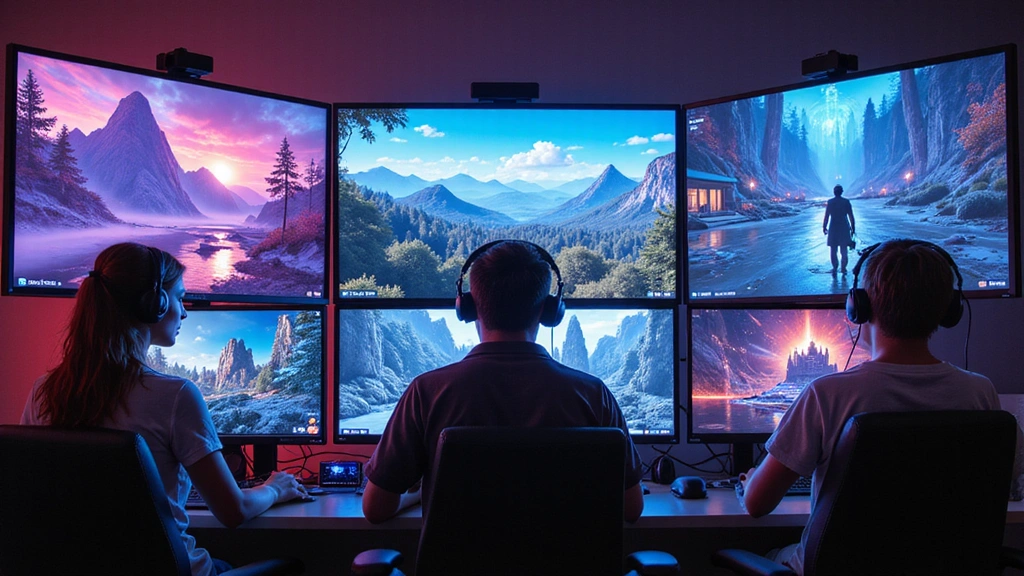Gaming has undergone a monumental transformation since its inception, evolving from simple monochromatic pixels to hyper-realistic virtual worlds. What began as a niche hobby for enthusiasts has blossomed into a global phenomenon, influencing culture, technology, and entertainment on an unprecedented scale. This journey is marked by relentless innovation, pushing the boundaries of what's possible and redefining human-computer interaction.
The Dawn of Digital Entertainment: Early Pioneers
In the early days, games like Pong and Space Invaders captivated audiences with their innovative yet simplistic mechanics. These foundational titles laid the groundwork for an industry that few could have predicted would grow to such massive proportions. The arcade era fostered a sense of community and competition, drawing crowds eager to test their skills against the latest machines. The shift to home consoles brought gaming into living rooms, making it more accessible than ever before.

The Golden Age of Arcades and Home Consoles
The 1980s and 90s witnessed an explosion of creativity and technological advancement. Iconic titles like Super Mario Bros., The Legend of Zelda, and Doom not only defined genres but also pushed the capabilities of their respective hardware. The introduction of 3D graphics in the mid-90s with consoles like the Nintendo 64 and PlayStation marked another pivotal moment, opening up new dimensions for storytelling and gameplay.
The Internet Revolution: Online Multiplayer and Community
The advent of the internet fundamentally changed the gaming landscape. Online multiplayer experiences became the norm, allowing players from across the globe to connect, compete, and collaborate. Games like EverQuest and World of Warcraft pioneered the massively multiplayer online (MMO) genre, creating persistent virtual worlds where players forged friendships and rivalries. This era also saw the rise of esports, transforming competitive gaming into a spectator sport.

From Casual Fun to Competitive Esports
Esports has grown exponentially, with professional players, dedicated leagues, and massive prize pools. The strategic depth and high-stakes competition of games like League of Legends, Dota 2, and Counter-Strike: Global Offensive have drawn millions of viewers, establishing esports as a legitimate and thrilling form of entertainment.
The Future is Now: VR, AR, and Beyond
Today, gaming continues to innovate at a rapid pace. Virtual Reality (VR) and Augmented Reality (AR) technologies are offering immersive experiences previously only dreamed of in science fiction. VR headsets transport players directly into game worlds, while AR overlays digital content onto the real world, blurring the lines between physical and virtual. Cloud gaming services are making high-end gaming accessible to a wider audience, regardless of their hardware capabilities.

The Metaverse and Beyond
The concept of the metaverse, a persistent shared virtual space, is gaining traction, promising even deeper integration of gaming into our daily lives. As technology continues to advance, the boundaries of what gaming can be will undoubtedly continue to expand, offering endless possibilities for entertainment, education, and social interaction. The journey from simple pixels to complex parallel universes is far from over.

Comments
GamerGuy88 - October 27, 2023
Fantastic article! It really captures the essence of how much gaming has changed. I remember playing Pong as a kid, and now my son is in VR. It's mind-blowing!
RetroFanatic - October 27, 2023
Couldn't agree more, GamerGuy88! The nostalgia is real, but the future looks even brighter. I'm excited for what's next.
VR_Enthusiast - October 26, 2023
The VR section really resonated with me. It's incredible how immersive games are becoming. Can't wait for full haptic suits!
Leave a Comment